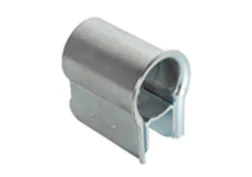Introduction
Quality control is unquestionable as the global market in automotive parts manufacturing is dynamic, competitive, and relatively new. Quality standards of components are important parameters because of the safety, efficiency, and ruggedness of the vehicles. The current article addresses the role of quality control in automotive industries, explains its significance, its processes, and the high-quality standards that our company embraced and maintained.
Managementof Quality in Production of Automotive Parts
The significance of quality control in the production of automotive parts may not be overemphasized. It is important for some reasons, these include:
Safety: Automotive components should be able to perform reliably in a variety of environments. A single defect would lead to a failure for a part which can endanger the vehicle and its passengers.
Legality: For every automotive manufacturer, business ethics must be observed and the standards and regulations of industry must be adhered to. This can only be achieved through proper quality management so that the components are within the legal requirements and do not attract fines in future.
Customer Satisfaction: Production of quality parts ensures optimum performance and durability of vehicles which results to positive feedback from clients and improvement of the brand image.
Cost Efficiency: Attaining pinpoint defects at the early stage of producing a part helps to cut on the expenses of waste materials while also seizing the resources meant for remedies and corrective measures after a product or a service has been recall.
Reputation: An organization’s ability to provide quality services or products on a consistent basis increases its image in the industry which in turn leads to the generation of more opportunities and partnerships.
QualityControlProcesses in Automobile Component Manufacture
Typical quality control processes in automotive parts manufacturing are all inclusive and aimed at the achievement of tolerance levels. Several activities are included in the processes of achieving these standards. Some of the processes are:
Incoming Material Inspection
All raw materials are checked before production and so are components. This minimizes the risk of entering into the manufacturing process materials that do not meet the requirements. All materials are certified, dimensions are checked, and chemical composition is analyzed.
In-ProcessInspection
Furthermore, there is a surveillance and inspection of parts in the course of the process. It includes:
• SPC: Control of production processes through statistical methods so as to avoid random deviations from set quality.
• NDT: Techniques like ultrasonic, magnetic particle, radiographic test to evaluate the invisibility of parts and surface defects without the actual destruction of components.
• Visual Inspection: Trained inspectors visually check parts and components that may be missed by mechanical means.
Final Inspection and Testing
A final inspection is performed after production to check that the finished parts are within the specifications and satisfy the quality requirements. This step usually includes:
• Dimensional Inspection: Employing the use of various tools such as calipers, micrometer or coordinate measuring machines (CMM) in confirming the dimension of the part.
• Functional Testing: Ensuring that the parts function relevantly in the real-world situations including stress test, fatigue test, and performance test.
Corrective Actions and Continuous Improvement
While defects are found, the necessary and sufficient corrective actions are performed immediately after the detection of the issue and its anticipation for further events. Analysis root cause methods such as Fishbone charts or 5 Whys are attached to find the reasons of the defects. Continuous improvement techniques and strategies, for example Lean and Six Sigma, are adopted and practiced to improve the quality processes gradually.
Quality Practices and Achievements of Our Company in the Area of Quality Control
Quality control has become standard as our activities’ practices. A sound quality management system (QMS) has been put in place which meets the requirements of the ISO/TS 16949. Below are notable practices and achievements:
Advanced Quality Planning
The Advanced Product Quality Planning (APQP) process assures product quality at all steps of product development. This helps us to understand customer needs and ensure the delivery of quality components at the early stages.
State-of-the-Art Facilities
All new equipment and technology are used to improve our quality control processes. All these are aimed at minimizing human intervention such as automated systems, sophisticated measuring equipment and digitalized quality control systems for in time control and assessment.
Skilled Workforce
In our company, all professionals including quality engineers and inspectors work to conserve the world standards of quality. We involve training and development on an active basis to our workers in order to equip them with the knowledge on quality enhancement techniques and modern systems.
Continuous Improvement Culture
We promote a culture of continuous improvement by creating opportunities for employees to suggest improvements. Our lean and six sigma approach significantly decreased the resources used in waste and enhanced the efficiency of the overall process.
Industry Recognitions
Owing to the high standards we have in quality control, we are also proud to note that we have been awarded and certified by several industrial bodies. Such awards are evidence that we remain focused on quality as well as meeting the high standards of the automobile industry.
Conclusion
In terms of automotive parts manufacturing, quality control function stands out as one of the primary social responsibilities which include: safety, compliance with legal requirements, meeting consumer needs and expectations, cost-effectiveness, and brand reputation. Due to such emphasis placed on such quality control measures, eventually, all of our parts meet the specified quality mark. Existence of our practices and qualitative achievements improves our competitive capacity and adds to the strength directly aimed to improve the quality of automobiles.

